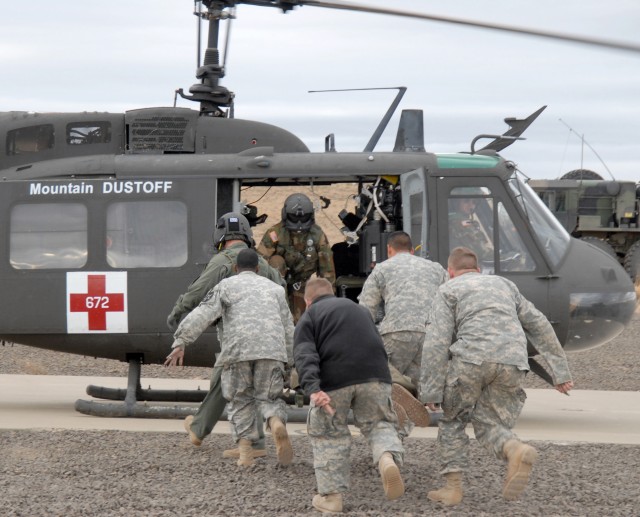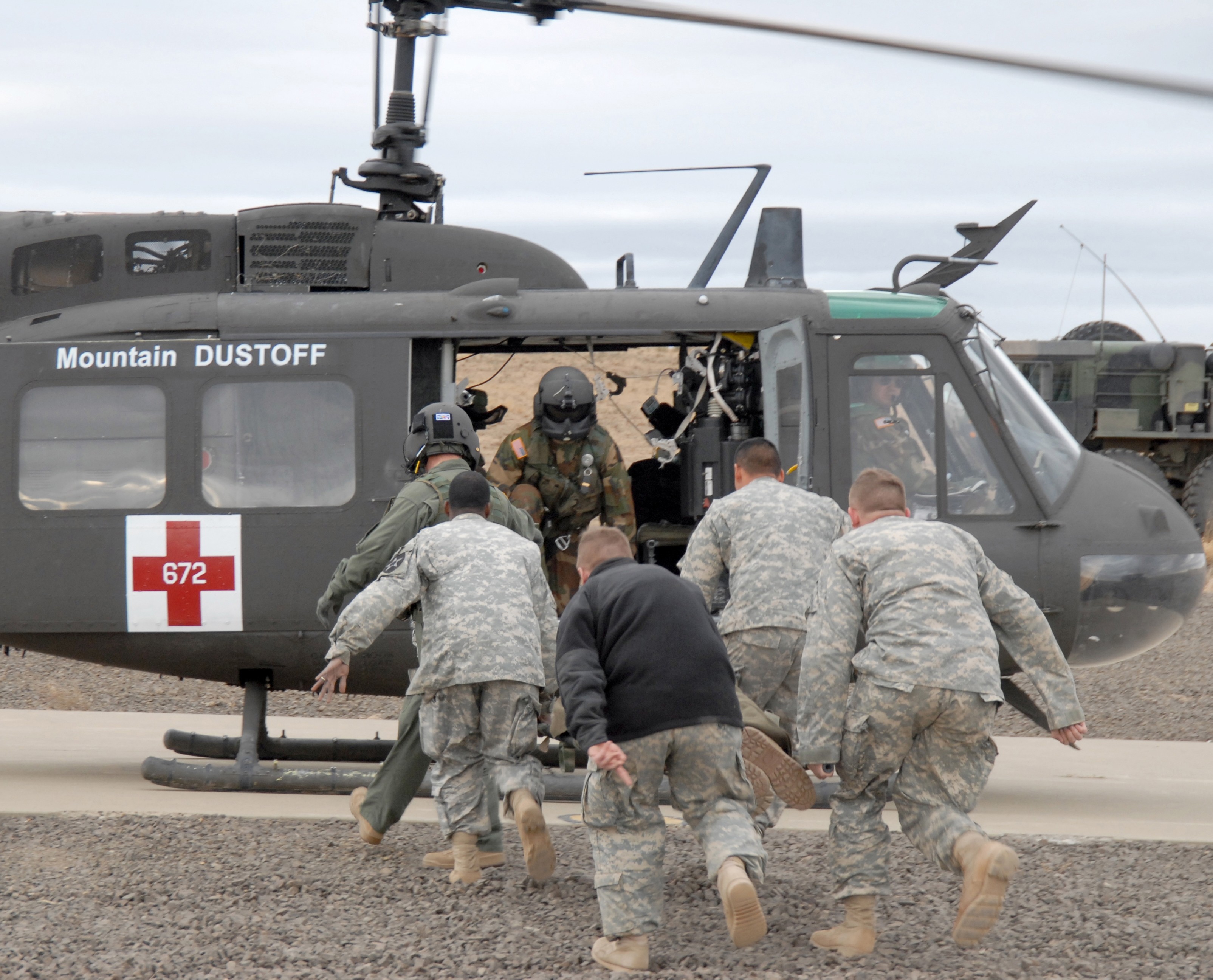CAMP VICTORY - Dozens of division and force surgeons, hospital commanders, other medical unit commanders and medics traveled from throughout theater to Camp Victory for the first Multi-National Corps-Iraq Surgeon's Conference of the year Jan. 7-9.
Guests included Lt. Gen. Kevin Kiley, U.S. Army Surgeon General, Brig. Gen. Samir Abdullah Hassan, Iraqi Armed Forces Surgeon General, and Brig. Gen. Mahde Jowed Ali, Iraqi Ground Forces Command Surgeon. "Medical Transitions in Iraq" was the theme.
With new leadership at MNC-I and other surrounding bases, all of Iraq is going through a transition of many sorts, said Lt. Col. Larry Patterson, MNC-I medical personnel manager and acting deputy corps surgeon.
"The closer we get, the more integrated we get and the better we learn each other's systems and the way we do business," Patterson said.
In addition to medical transition issues, surgeons shared ideas about medical tactics on the battlefield, challenges and successes in the Iraqi medical community, and preparations for the future.
Some of today's medical successes include new tools and training Soldiers receive prior to deployment. In past wars, Soldiers were taught the basics of first aid. Today, every Soldier deploys with an individual first-aid kit, each containing a tourniquet. The tourniquet has been proven to save lives, said Col. Leo Tucker II, MNC-I surgeon.
"By early application of the tourniquet, we've been able to stop hemorrhages. If you do appropriate medical management within the first 10 minutes or so (of an injury), you have bought longer time to get to a definitive care site," he said.
The number of combat lifesavers has increased, making a significant difference in the amount of lives saved.
"[Combat lifesavers] bring a lot of skill to the table until a medic can take over," Tucker said. "Everyone is important throughout this whole echelon of care, all the way from buddy aid to combat lifesaver to medic through MEDEVAC to the Level III Combat Support Hospital surgeons and staff. Those are critical steps to saving lives.
Tucker also credits the military with saving lives by learning how to adapt to the threat of improvised explosive devices. Some of the adaptations include up-armored vehicles, body armor, ballistic eyewear and other personal protective devices that save lives.
The medical field is adapting very similarly, Tucker said.
"Although these (weapons) have been used in other wars, there is a more pronounced use of them comparatively speaking," he said.
A while back, Soldiers were afraid to use tourniquets for fear of losing a limb. Today, not only are they saving lives, but Soldiers are applying additional live-saving tools such as the Hemcon Chitosan bandages and Quick-Clot sponges.
Iraqi surgeons also shared ideas with their Coalition counterparts, giving insight to challenges they face everyday.
"Right now we're evacuating a lot of Iraqis into our hospitals, but the Iraqis are setting up their own hospitals right now," Patterson said. "Hopefully in the near future they will take care of a lot of their own patients, and we will transition that responsibility to them."
There needs to be a transition from Coalition Forces being at the front to Iraqis being able to take control and provide medical services for their soldiers and citizens, Tucker said.
"They have good plans, but it won't happen overnight," he said.
Tucker said the most important point of the conference was the interaction between the medical leaders in Iraq that will set the tone for future medical support in Iraq.
"Our medics are highly trained and ready for any mission," Tucker said. "Soldiers will fight harder if they know they're going to be taken care of. The point of our mission from a medical perspective is to make sure we not only take care of our service members but help to transition care for Iraqi soldiers and citizens to the Iraqi medical system."
The next step is a follow-up on the conference's initiatives between now and the next conference, which will be held later this year.


Social Sharing